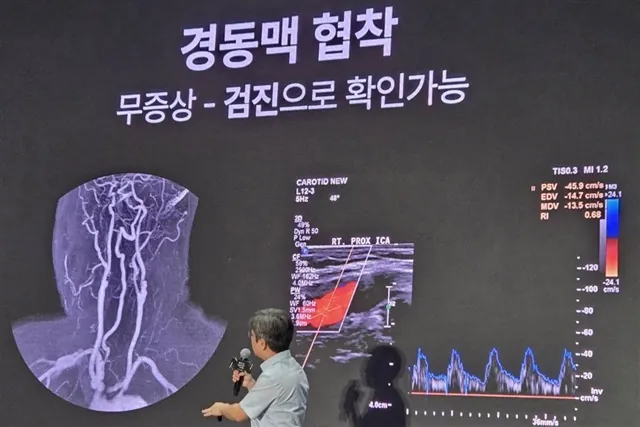
Groundbreaking Study Reveals Surprising Cardiovascular Risks in Diabetes: A Gender Perspective
2025-08-24
Author: Rajesh
Shocking New Findings on Diabetes and Heart Disease!
In a landmark study, researchers have unveiled startling differences in cardiovascular disease (CVD) risks among men and women with type 1 diabetes (T1D) and type 2 diabetes (T2D). The findings indicate that younger men with T2D face worse mortality and heart-related outcomes compared to their T1D counterparts. However, for women of all ages, T1D poses a significantly higher risk than T2D.
The Study That Changes Everything
Presented at the European Association for the Study of Diabetes (EASD) annual meeting in Vienna, the research led by Dr. Vagia Patsoukaki from Uppsala University is the first to dissect cardiovascular risks by sex and diabetes type. While diabetes has long been known to elevate CVD risk globally, this study uniquely contrasts T1D and T2D outcomes across male and female patients.
Who Faces Greater Risks?
Analyzing data from over 400,000 diabetes patients from the Swedish National Diabetes Register, the team found alarming statistics. Young men under 50 with T2D were found to have a staggering 51% increased risk of all cardiovascular issues and a 2.4 times greater risk of heart attacks compared to those with T1D. This trend shifts as men age, with T1D patients becoming more at risk past 50.
Heartbreak for Women with Type 1 Diabetes
For women, the situation worsens significantly with T1D. They encounter notably worse CVD outcomes regardless of age, due to a longer duration of the disease and the natural protective effects typically enjoyed by women being diminished. Dr. Patsoukaki emphasizes, "Women with type 1 diabetes may lose traditional heart disease protections because they live with the condition longer, leading to increased risks."
Uncovering the Underlying Risks
The study didn't just compare diabetes types; it took a deep dive into the underlying risk factors. For T2D, issues such as obesity and high blood pressure often cluster, amplifying the inherent risks. While women may benefit from certain biological protections, the long-term high blood sugar exposure in those with T1D erodes these advantages.
A Call for Better Management
These findings serve as a clarion call for the need for tailored management strategies in diabetes care. Dr. Patsoukaki advocates for more aggressive approaches in managing risk factors, especially for women with T1D, while also emphasizing the heightened need for vigilance in monitoring heart health in men with T2D.
Conclusion: Gender Matters in Diabetes Care!
As this study illustrates, gender plays a critical role in assessing cardiovascular risks among diabetes patients. Younger men with T2D face significant challenges, whereas women with T1D experience a heightened vulnerability across nearly all outcomes. These insights could transform clinical practices and improve the lives of millions living with diabetes.




 Brasil (PT)
Brasil (PT)
 Canada (EN)
Canada (EN)
 Chile (ES)
Chile (ES)
 Česko (CS)
Česko (CS)
 대한민국 (KO)
대한민국 (KO)
 España (ES)
España (ES)
 France (FR)
France (FR)
 Hong Kong (EN)
Hong Kong (EN)
 Italia (IT)
Italia (IT)
 日本 (JA)
日本 (JA)
 Magyarország (HU)
Magyarország (HU)
 Norge (NO)
Norge (NO)
 Polska (PL)
Polska (PL)
 Schweiz (DE)
Schweiz (DE)
 Singapore (EN)
Singapore (EN)
 Sverige (SV)
Sverige (SV)
 Suomi (FI)
Suomi (FI)
 Türkiye (TR)
Türkiye (TR)
 الإمارات العربية المتحدة (AR)
الإمارات العربية المتحدة (AR)